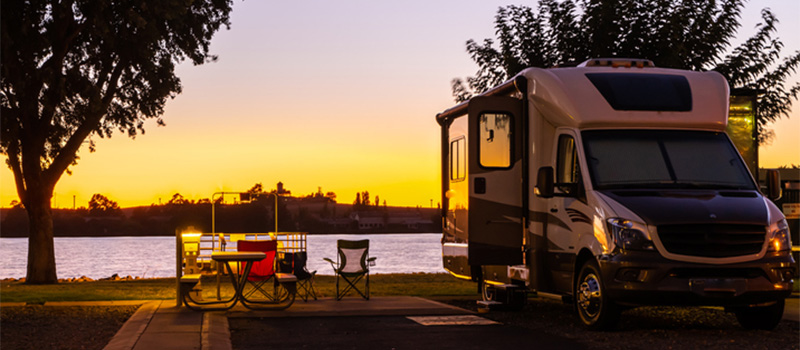RV Buying Guide: What to Ask Before Making a Purchase
RV Buying Guide: What to Ask Before Making a Purchase

RV Buying Guide: What to Ask Before Making a Purchase
Do you love taking road trips and the convenience of bringing your accommodations with you? Recreational Vehicles (RVs) are a fun way to travel and see the sights. They come in a variety of sizes and styles. Before buying your own RV, there are several questions you should ask.
What do you want to do with it?
While some RVs are drivable motor homes, others are trailers that must be towed behind another vehicle. You need to consider where you want to take your RV and whether you have a vehicle capable of pulling a trailer or you need an all-in-one RV. What you plan to do with the RV may also impact what amenities and features you would appreciate or the maximum size requirements.
What can you afford?
Before buying an RV, you should consider the type and size of RV you need, your budget, and whether you prefer a new or used vehicle. Additionally, they should consider factors such as fuel efficiency, maintenance costs, and storage options. You may find that renting an RV is more cost-effective if you don’t have the time or budget to keep up with ownership costs throughout the year.
What maintenance will the RV need?
If you want to keep your RV in tip-top shape and use it for years to come, you need to take good care of it. Regular maintenance means checking the fluids, tires, battery, safety equipment, AC, and generator. Before making a purchase, you should have a good understanding of how expensive upkeep is for the kind of RV you want to own.
What will RV insurance cost?
Just like any other vehicle, you will need to insure your RV before taking it out on the road. You can talk to your insurance agent about the RV models you are considering to find out how much coverage will cost. You want to make sure insurance expenses are going to fit into your overall budget before making a commitment.
How does it handle?
Take the RV out for a test drive before making a purchase decision. You want to get a feel for visibility as well as how it handles, turns, brakes, and accelerates. Ideally, you should test drive it in the wind or when road conditions aren’t great to see how much weather could impact your trips.
Where will you store it?
RVs are large and need a place to sit when they aren’t in use. Some cities and homeowners associations (HOAs) have rules against keeping your RV in public view, so you may not be able to just keep it in your driveway. Some people have a large enough garage to house their RV or choose to pay for parking in an RV storage facility.
Content on this page is designed for general information and/or entertainment purposes. It is not intended to provide legal or any other type of advice and is not meant to be a thorough discussion of every issue that a person should consider or may encounter. Unless expressly referenced, we are not affiliated with any company or app that may be referenced herein and we do not endorse them. We are not responsible or liable for the user's reliance on this content or for the availability of links to other websites or resources, or for advertising, products, services or other materials on or available through these websites or resources. Any reference to third party rates or products is for identification only and is subject to change without notice.
